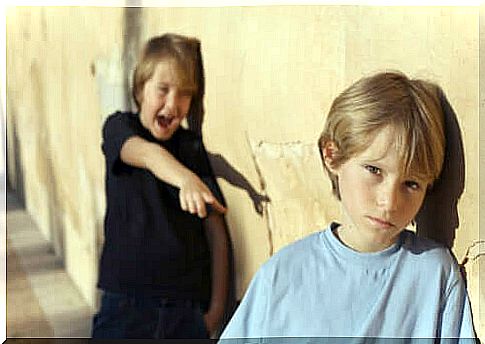6 Techniques To Teach Children To Handle Teasing

Currently, many children do not want to go to school because they are often teased. The provocations happen not only inside the school, but also in any other place (parks, buses, corridors, patio, etc.). Therefore, it is very important that children are able to handle teasing.
Despite the efforts of families and schools to create a climate of cooperation, it is very difficult to avoid provocations. When someone makes fun of children, they feel bad, ridiculed, etc. Parents cannot always protect their children from these unpleasant and harmful situations.
For this reason, it is important to provide tools and strategies to help them deal with these situations. If they are taught from an early age, they will be better prepared for conflicts before, during and after adolescence. Do you want to know more about the subject? Keep reading.
Dealing with teasing: reasons why children and teens make fun of each other
draw attention
One way to get attention is through teasing, even if it’s something negative. It’s better to feel that they pay attention to you, even if it’s for something negative, than to be ignored.

Feelings of superiority and power
group acceptance
The feeling of belonging to a group can be so strong that children make fun of others to be accepted by the most popular children.
not accept the differences
On many occasions, the little ones do not understand the differences and are not familiar with them, whether they are cultural, racial, physical, etc. Instead of giving help and understanding to those who are different, they make fun of them.
Imitation
Some boys and girls reproduce what they see at home in the other environments they attend and act in the same way with their peers. Thus, these children may be living in a family environment or an environment close to violence.
Techniques for dealing with provocations
- Reinforce your security with love.
- Try to develop in children the ability to laugh at themselves.
- Teach not to be afraid of ‘what will be said about her’. However, if teasing is frequent over time, it is advisable for parents to intervene.
Teach proper responses to deal with provocations
ignore them
Children who tease almost always give up when they see that they are ignored. Because of this, we can teach our children to turn around and walk away without saying anything when provoked.
They can also fight them by following a saying: “ To crazy words, deaf ears ”. As parents, we have to ensure that our children are firm in these behaviors, as the teasing child will try to get our child to get angry and react.

learn quick answers
It is important that these responses do not include any insults or teasing. Quick responses will confuse the teasing child. For example, a standard response to a tease would be, “I know you want to make me angry, but what you say doesn’t affect me, so it won’t work.”
play with the teasers
Parents can practice with children, playing with a kind of psychodrama. Parents can play the role of the teasing child by saying the things she would say, while the child needs to practice responding to teasing.
This game will provide many tools for the child to be able to deal with the provocations. The more these appropriate responses are practiced, the more likely they are to defeat the teasing child.
Give a lot of understanding and love to learn to deal with provocations
When children talk to their parents about these issues, we need to be understanding and loving with them. It’s a good idea to look for stories about teasing that have a happy ending.
It is very important that children realize how proud we feel every time they try to resolve these situations that involve teasing.
These can be some techniques to help our children deal with teasing. But if they happen at school often, it’s important to talk to the teacher so he can help too.
Certainly, more than once, your child has complained of being teased. Therefore, this article can be very helpful in teaching your child to put these techniques into practice.









